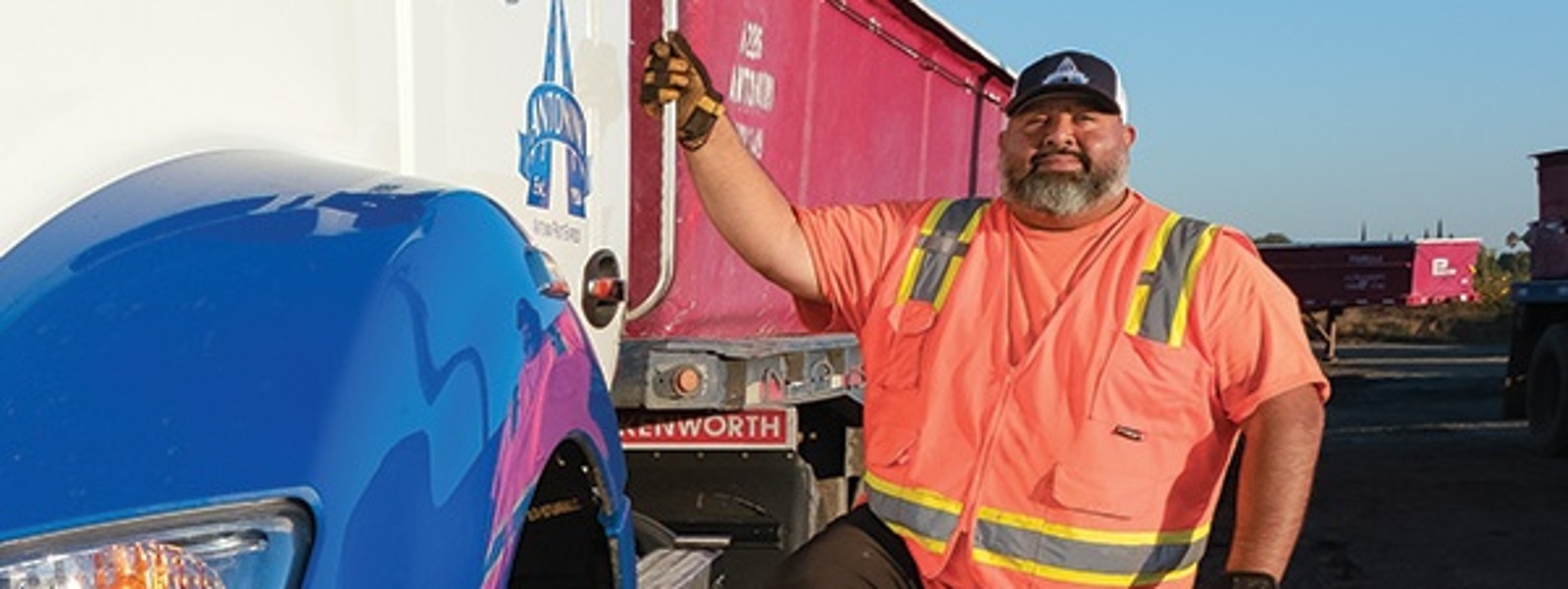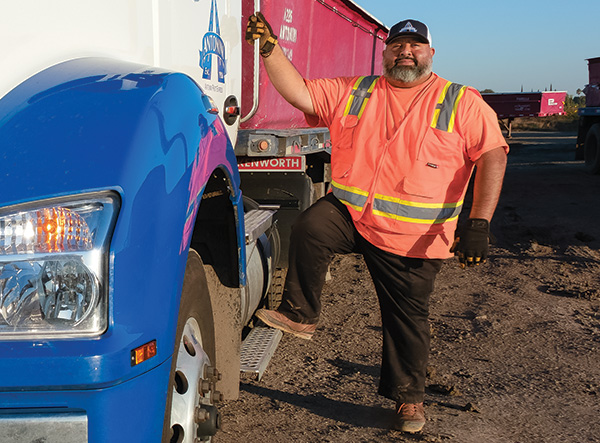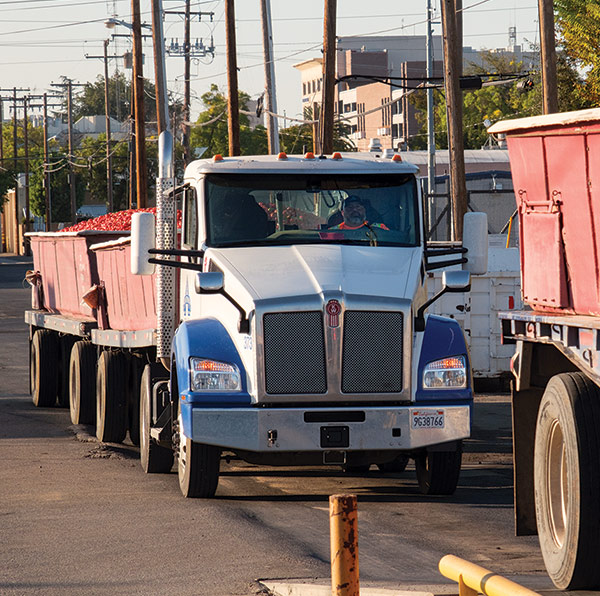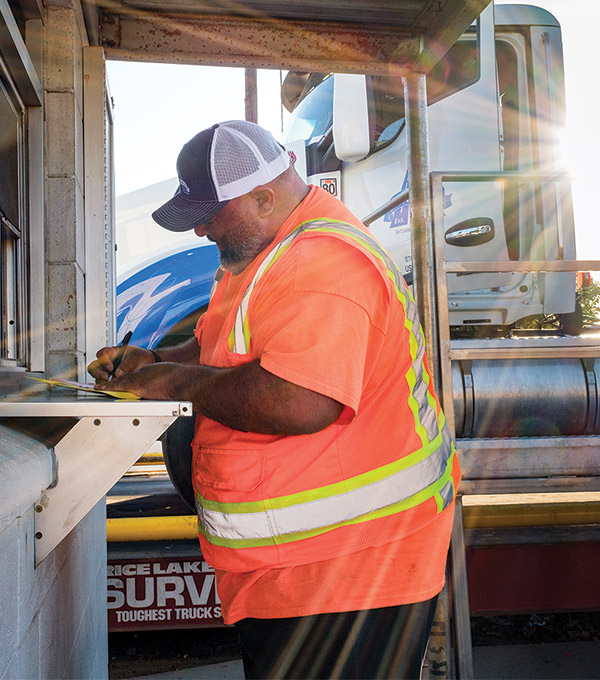It's a bountiful life: Getting the farm to the table

Summer 2024 California Bountiful magazine

Trucker drives home the importance of his role in agriculture
Californians are surrounded by fertile land producing delicious and nutritious foods, and for that they can thank farmers and ranchers. This bounty then finds its way to their tables each day, and for that they can thank a chain of unsung professionals working behind the scenes.
One of these dedicated individuals in the farm-to-fork process is Alejandro Juarez, a seasonal agricultural truck driver who transports around 6,000 tons of food per season for the trucking company Antonini Fruit Express. The company was founded in Stockton in 1926 by Italian immigrant Virgilio (Vic) Antonini and is now run by his grandchildren, siblings Joe Antonini, president, and Karen Wuellner, vice president. Joe’s son Stefano Antonini is the supervisor of the company’s Modesto terminal, where Juarez started working in the 2021 harvest season, transporting crops such as tomatoes, almonds and walnuts.
How did you get interested in agricultural trucking?
I grew up in the ag industry. My dad worked raising poultry and that’s where I spent most of my weekends. And then from there, my love for being outdoors just grew. I got into driving trucks about five years ago through my father-in-law. He was the owner and operator of a trucking company for about 33 years.
What is your typical shift like?
I work from late June to mid-October, six days a week. I’m on the morning shift, so I come in about 3 or 3:30 and I’m on for 12 to 14 hours, depending on traffic, and then I’m off for the evening shift. My routes change because they’ll send us to whatever farms have crops ready to transport. We go about as far south as Bakersfield and about as far north as Williams. We’ll go to Winters too. It’s just beautiful in the Capay Valley. I love the drive out that way.

What are some of the things you do each day besides drive?
We clock in, get our keys to our vehicle and pick out a trailer. We do a pre-trip inspection of all the equipment to make sure everything is working properly and safely. We come back with the trailer and truck number to dispatch and then dispatch sends us out to the next load that’s coming out. Out in the fields, depending on the crop, sometimes we have to wait for our load to be ready to pick up. And sometimes if it is ready, we just (unhook and leave an empty trailer and hook to a loaded trailer). When we deliver, we also take the trucks through a weigh station and an inspection station that inspects the crop.
What are some of the biggest challenges of your job?
Probably the breakdowns out in the field. We just have to wait for the machine to get fixed. We also have to deal with your typical traffic buildups, but, at most, we’ll probably wait about 30 minutes. Mother Nature has a big effect on the job too. Tomato harvesting isn’t done during the rain, so if it rains, that affects us very much as well. Also, too much water can cause problems in the tomato fields and too much excessive heat can speed up tomato growing, which speeds up the trucking.

What would you like the average person to know about your job?
I wish they would have a little bit more patience with us. I know everybody's in a hurry getting from work to home or from home to soccer or baseball games or music lessons, but we’re out there because we’re transporting their food products. I’d also just like to elaborate that ag is a good place to make a career, whether it be farming, trucking or processing.
What do you find most rewarding about your job?
The fact that we’re a key element in food processing. We’re the middle guys. It starts with the farmer and the seed, to the workers who maintain it, to workers who pick it, to us who transport it, to the processors and the packaging, and then to the distributors. It’s a chain. We’re a necessary part in this whole process that makes one can of something so small as tomato paste or sauce and gets it to people’s tables.

